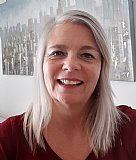Introduction
Embarking on a journey to the Netherlands, a country renowned for its picturesque landscapes, historic cities, and vibrant culture, is an exciting adventure that promises an array of unforgettable experiences. While English is widely spoken, arming yourself with a collection of useful Dutch phrases can significantly enhance your travel experience. Learning the local language, even just a few key phrases, not only facilitates smoother interactions but also opens doors to more authentic cultural exchanges. It demonstrates respect for the local culture and an eagerness to immerse oneself fully in the Dutch way of life.
This guide is designed to equip travelers with essential Dutch phrases that will prove invaluable in various scenarios, from navigating public transportation and ordering meals to shopping and seeking assistance in emergencies. By incorporating "Netherlands travel tips," "communicating in Dutch," and "Dutch language basics for tourists" into your preparation, you’ll not only ease your way through practical daily interactions but also enrich your connection with the locals. Whether you're marveling at the masterpieces in Amsterdam's museums, exploring the historic streets of Utrecht, or enjoying the serene beauty of the Dutch countryside, a few phrases in Dutch can transform your trip from a mere visit into a truly memorable journey.
Join us as we delve into the linguistic heart of the Netherlands, providing you with the language tools you need to navigate this fascinating country with confidence and cultural sensitivity. From basic greetings to essential phrases for dining out, shopping, and emergencies, this article is your gateway to a more engaging and fulfilling Dutch adventure.
Importance of Dutch in the Netherlands
The Netherlands is a country where Dutch is the primary language spoken by the majority of its population. Despite the high proficiency in English among the Dutch people, which facilitates communication for tourists and international visitors, learning and using basic Dutch phrases enriches the travel experience significantly. The effort to speak the local language, even at a basic level, is often appreciated by residents and can lead to more meaningful interactions and a deeper understanding of the Dutch culture and way of life.
Dutch, belonging to the West Germanic language group, shares similarities with English and German, making it somewhat accessible for speakers of these languages to learn basic phrases. The linguistic landscape of the Netherlands reflects its historical and cultural development, with Dutch serving as a cornerstone of national identity. However, the country's openness to international influences and its role as a hub for trade and tourism have also made the Dutch people highly proficient in English and other foreign languages.
The emphasis on learning Dutch phrases for tourists is not about achieving fluency but rather about showing respect for the country's culture and enhancing one's own travel experience through improved interactions. Simple phrases related to greetings, asking for directions, ordering food, and expressing gratitude can significantly impact your travels, making them smoother and more enjoyable. Furthermore, attempting to communicate in Dutch can serve as an icebreaker and foster a friendlier atmosphere, encouraging locals to share insights about their country that might not be readily available to those who rely solely on English.
Incorporating language learning into travel preparation aligns with broader trends in tourism that prioritize sustainability and cultural immersion. Tourists who make an effort to learn about and engage with the local language and culture contribute to a more respectful and reciprocal exchange between visitors and host communities. This approach not only enhances the individual's travel experience but also supports the preservation of linguistic diversity and cultural heritage.
Understanding the importance of Dutch in the Netherlands is the first step towards a more immersive and respectful travel experience. As we move forward, this guide will introduce you to essential Dutch phrases that will aid you in various situations, from social interactions to navigating the practical aspects of your trip. By familiarizing yourself with these phrases, you will be better equipped to explore the Netherlands with confidence and cultural sensitivity.
Basic Dutch Phrases for Everyday Use
Acquiring a set of basic Dutch phrases is invaluable for any tourist wishing to navigate the Netherlands more effectively and engage with locals in a respectful manner. This section provides a curated selection of essential phrases categorized by common situations a tourist might encounter, including greetings, dining, shopping, and asking for directions. Mastering these expressions will not only enhance your travel experience but also demonstrate cultural appreciation and effort to communicate in the native language of the country you are visiting.
Greetings and Politeness
Greeting locals in Dutch is a fundamental aspect of polite interaction and is appreciated in both formal and informal settings. Basic greetings such as "Goedemorgen" (Good morning), "Goedenmiddag" (Good afternoon), and "Goedenavond" (Good evening) are versatile and can be used in a variety of contexts. Expressing thanks is equally important; "Dank u wel" (Thank you) and "Alstublieft" (Please) are key phrases that facilitate courteous communication.
Ordering Food and Drinks
When dining in the Netherlands, being able to order food and drinks in Dutch enhances the dining experience. Phrases such as "Ik zou graag ... bestellen" (I would like to order ...), "Wat raadt u aan?" (What do you recommend?), and "De rekening, alstublieft" (The bill, please) are useful. Additionally, specifying dietary preferences or restrictions, such as "Ik ben allergisch voor ..." (I am allergic to ...), can be crucial for a safe dining experience.
Shopping and Bargaining
Shopping in local markets or stores provides an opportunity to practice Dutch. Essential phrases include "Hoeveel kost dit?" (How much does this cost?), "Heeft u dit in een andere maat?" (Do you have this in another size?), and "Kan ik met creditcard betalen?" (Can I pay with a credit card?). Although bargaining is not common in all shopping contexts, knowing how to ask if a discount is available, "Is er een korting mogelijk?" can be useful in markets.
Directions and Transportation
Navigating the Netherlands requires a basic understanding of directional phrases. Questions like "Waar is het station?" (Where is the station?), "Hoe kom ik bij het museum?" (How do I get to the museum?), and "Is dit de weg naar ..." (Is this the way to ...) are fundamental. Additionally, understanding transportation-related phrases, such as "Een kaartje naar ..." (A ticket to ...) and "Welke bus/tram gaat naar ...?" (Which bus/tram goes to ...?), will improve your mobility.
Emergency and Health
In the unlikely event of an emergency, knowing how to ask for help is crucial. Phrases such as "Ik heb hulp nodig" (I need help), "Bel de politie" (Call the police), and "Waar is het dichtstbijzijnde ziekenhuis?" (Where is the nearest hospital?) can be lifesaving. For less urgent health issues, being able to communicate symptoms or the need for a pharmacy, "Waar kan ik een apotheek vinden?" (Where can I find a pharmacy?), is beneficial.
Learning these basic Dutch phrases will not only facilitate smoother interactions during your travels but also deepen your connection to the places you visit and the people you meet. Engaging with the local language is a sign of respect and can lead to more enriching and authentic travel experiences. As you continue to explore the Netherlands, the effort to communicate in Dutch, however basic, will undoubtedly enhance your journey and leave a lasting impression on both you and those you encounter.
Top 10 Dutch Phrases for Tourists
Greetings and Politeness
- Goedemorgen - Good morning
- Goedenmiddag - Good afternoon
- Goedenavond - Good evening
- Hoe gaat het? - How are you?
- Goed, dank u. En met u? - Fine, thank you. And you?
- Dank u wel - Thank you
- Alstublieft - Please
- Graag gedaan - You're welcome
- Tot ziens - Goodbye
- Excuseer me - Excuse me
Ordering Food and Drinks
- Ik zou graag ... bestellen - I would like to order ...
- Heeft u een menu in het Engels? - Do you have a menu in English?
- Ik ben allergisch voor ... - I am allergic to ...
- Kan ik de rekening krijgen, alstublieft? - Can I have the bill, please?
- Een tafel voor twee, alstublieft - A table for two, please
- Een glas water, alstublieft - A glass of water, please
- Wat beveelt u aan? - What do you recommend?
- Ik ben vegetariër - I am a vegetarian
- Is dit gerecht pikant? - Is this dish spicy?
- Kan ik nog een beetje ... krijgen? - Can I get a little more ...?
Shopping and Bargaining
- Hoeveel kost dit? - How much does this cost?
- Kan ik met creditcard betalen? - Can I pay with a credit card?
- Heeft u dit in een kleinere/grotere maat? - Do you have this in a smaller/larger size?
- Ik kijk gewoon even rond - I'm just looking around
- Kan ik een korting krijgen? - Can I get a discount?
- Ik neem het - I'll take it
- Waar is de paskamer? - Where is the fitting room?
- Kunt u me helpen? - Can you help me?
- Is dit het laatste stuk? - Is this the last piece?
- Heeft u ...? - Do you have ...?
Directions and Transportation
- Waar is het station? - Where is the station?
- Hoe kom ik bij het museum? - How do I get to the museum?
- Kan ik een kaartje kopen voor ...? - Can I buy a ticket for ...?
- Welke bus/tram/metro gaat naar ...? - Which bus/tram/metro goes to ...?
- Is dit de weg naar ...? - Is this the way to ...?
- Hoe ver is het? - How far is it?
- Kan ik lopend naar ...? - Can I walk to ...?
- Wanneer vertrekt de laatste trein/bus? - When does the last train/bus leave?
- Ik ben verdwaald - I am lost
- Kunt u dat op de kaart aanwijzen? - Can you point that out on the map?
Emergency and Health
- Ik heb hulp nodig - I need help
- Bel de politie - Call the police
- Waar is het dichtstbijzijnde ziekenhuis? - Where is the nearest hospital?
- Ik voel me niet goed - I don't feel well
- Ik heb een dokter nodig - I need a doctor
- Kan ik hier medicijnen krijgen? - Can I get medicine here?
- Ik heb mijn ... verloren - I have lost my ...
- Help alstublieft - Please help
- Het is een noodgeval - It's an emergency
- Waar kan ik een apotheek vinden? - Where can I find a pharmacy?
Cultural Tips and Language Etiquette
Understanding and adhering to local customs and language etiquette is crucial for tourists wishing to navigate the Netherlands with respect and sensitivity. This section offers guidance on cultural norms related to language use, along with tips for effective communication. Being mindful of these aspects can significantly enrich your interaction with Dutch society and ensure a more harmonious experience during your visit.
Respect for Formality
In the Netherlands, the use of formal language, particularly in addressing people, is an important aspect of social interaction. The formal "u" is used to address someone respectfully, while "je" is used in more informal contexts. When in doubt, it's advisable to start with the formal address, as it is better to err on the side of formality. Observing how locals address each other can also provide clues on the appropriate level of formality to use.
Pronunciation Efforts
The Dutch appreciate when foreigners make an effort to speak their language, even if the pronunciation is not perfect. Attempting to pronounce words correctly, however, demonstrates respect and willingness to learn. It is helpful to listen closely to how locals pronounce words and try to mimic their intonation. Many Dutch people are happy to correct your pronunciation and teach you, so don't be afraid to ask for help.
Switching to English
While the Dutch are generally proficient in English, assuming that everyone speaks English without first attempting Dutch can be perceived as impolite. It's courteous to start a conversation with a simple Dutch greeting or phrase and then ask, "Spreekt u Engels?" (Do you speak English?) if you need to switch languages. This approach shows respect for the Dutch language and culture, and most locals will switch to English to accommodate the conversation.
Showing Appreciation
Expressing gratitude is a key part of Dutch language etiquette. Saying "dank u wel" (thank you) for services rendered or help received is important. Additionally, showing appreciation for someone's efforts to speak English or help you understand something in Dutch strengthens social bonds and fosters positive interactions.
Cultural Sensitivity
Being aware of and sensitive to the cultural context in which language is used is essential. Topics that may be considered private or sensitive, such as personal income or political beliefs, should be approached with caution. The Dutch value directness and honesty in communication, but this should not be confused with a license to forego politeness or sensitivity.
Language Learning as Cultural Immersion
Engaging with the Dutch language is an opportunity for cultural immersion. It allows you to experience the Netherlands more deeply than the average tourist. Language learning can open doors to understanding Dutch art, history, and societal nuances that remain inaccessible to those who do not venture beyond English. Consider language practice a key component of your cultural exploration.
By adhering to these cultural tips and language etiquette guidelines, tourists can navigate the Netherlands with greater ease and respect. These practices not only facilitate smoother communication but also deepen the travel experience, allowing for a more authentic connection with the Dutch people and their rich cultural heritage.
Conclusion
In conclusion, familiarizing oneself with basic Dutch phrases before visiting the Netherlands can significantly enhance the travel experience. This guide has provided essential phrases across various common situations, including greetings, dining, shopping, transportation, and emergencies. Mastery of these phrases allows tourists to navigate daily interactions more smoothly, demonstrate respect for local culture, and foster a deeper connection with the Dutch people.
Beyond the practical benefits, attempting to communicate in the local language is a gesture of cultural appreciation that can lead to more authentic and enriching experiences. It shows an openness to learning and an effort to engage with the country on a deeper level, beyond the surface-level experiences of the average tourist. Moreover, it can lead to unexpected discoveries and friendships, enriching your journey in ways that transcend the conventional tourist experience.
Language is a powerful tool for cultural immersion. By embracing the Dutch language, even in its most basic form, tourists can unlock a more immersive and meaningful exploration of the Netherlands. This guide encourages travelers to view language learning not as a hurdle, but as an integral part of the travel experience, offering a unique opportunity to engage with the Dutch heritage and lifestyle.
As you prepare for your journey to the Netherlands, remember that each phrase learned and spoken is a step towards a more connected and insightful travel experience. The effort to communicate in Dutch, however modest, will not only enhance your travels but also contribute to a greater mutual understanding and respect between cultures.















